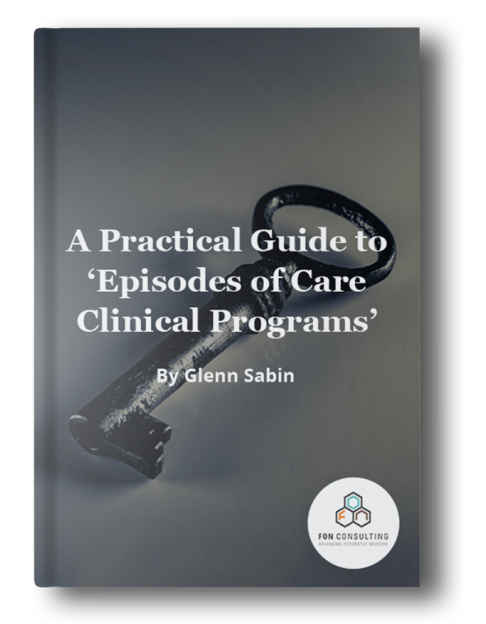
If you’ve seen one integrative health practice…you’ve seen one integrative health practice!
—Glenn Sabin
Your medical practice is not a cookie-cutter conveyor belt of medical care delivery—or at least we hope not. This type of experience, especially within primary care—but it runs across other specialties, too—is what may have brought you to study and practice integrative, functional, or lifestyle medicine in the first place.
Patient needs are evolving. They are looking for more. They want more options, quicker access; they want to be seen and heard like never before. They are looking for more value from their investment in care and its impact on their health and lives.
The model you currently operate within may have worked for a number of years, even decades, but “the times, they are a-changin”. Your practice must evolve within a dynamic marketplace comprised of more and more folks putting themselves at the center of their
own care.
At FON we know that transitioning from a traditional insurance-based model to a membership model can be daunting. To effectively convert to concierge medicine, you need a strategy, and a crystal-clear understanding of your patient panel—demographics and psychographics.
With end-to-end support, the FON team can take you from concept to a thriving clinic within six months. And unlike your typical concierge medicine consultant, we offer ongoing support and member management to ensure the longevity of your clinic’s success.
We’ve seen our fair share of incredibly busy integrative health clinics operating within an insurance model. Including those with multiple practitioners, and months-long waiting lists. These same clinics often offer supplements and various cash services such IV therapy, massage, acupuncture, or aesthetics.
But many are barely breaking even, and some are in the red.
How can that be? Typically, it is because integrative, functional and lifestyle medicine practices over-deliver on patient care and are not adequately remunerated from Medicare and private insurance.
Put simply, the time necessary for truly comprehensive new patient visits and follow up care do not align economically with CPT codes. And for 2023, Medicare is cutting its reimbursement rate by 3.36%. For medical practices operating on the margins, this does not bode well for running a thriving practice.
Related Content: Time to Rethink Your Practice Business Model
Ready for a complimentary 30 minute deep-dive discussion on your clinic and practice model options to evolve how you serve patients and get compensated?

You may not accept health insurance and opted out of Medicare years ago, preferring to work directly with patients, without a middleman.
That has allowed you to spend more time getting your patients healthy and focused on wellness, while also earning what you deserve—fair compensation without the aggravation of CPT codes and unnecessary paperwork and bureaucracy.
But have you ever considered a straight membership practice? Concierge medicine works exceptionally well for primary care practices, but can also work for other specialties. A lot depends on your current practice panel, the services you provide, and the demographics and psychographics of
your patients.
Related Content: Physician Specialists and Emerging Practice Business Models: Choosing Forward
The beautiful thing about subscription-based healthcare is it encourages patients to be seen regularly, not just when they have more acute situations. Instead of thinking about the ala carte pay-as-you-are-treated transactional nature of fee-for-service, folks pay monthly or quarterly.
Quickly, the practice has a much more consistent cashflow, which makes planning for business growth, and personal financial planning alike, a lot more dependable.

You don’t need to work with the big concierge brands (think: MDVIP, PartnerMD, SignatureMD) to effectively convert your practice model.
You deserve a concierge medicine consultant who can deliver a custom solution for the design of your practice and resulting patient experience. Your practice should be unique, just like the population you serve. It must align with your personal and professional brand, and those of your colleagues.
Cookie-cutter solutions that save money upfront, but result long term with overpaying onerous fees, should be seen for what they are, and avoided. Your patients deserve a high-quality patient experience and positive clinical outcomes—and you deserve a work-life flow that allows for both financial security and professional satisfaction through regaining your love of practicing medicine.
Related Content: Thinking of Converting to Concierge? Don’t Give Away Your Practice
Ready to learn how to start a concierge medical practice that works for you and your patients? Schedule a complimentary 30 minute deep-dive discussion on your clinic and practice model options to evolve how you serve patients and get compensated.

Episodes of care programs utilize a patient-centered, collaborative approach, and incorporate a range of clinical interventions to effectively deliver integrative health support.
An episode of care refers to a specific period during which a patient receives clinical and educational services and support for a particular health condition or illness. An episode of care may include diagnostic tests, medical treatments, medication management, lifestyle modifications, supplementation, health coaching, education, and follow-up care.
Check out FON’s Practical Guide to Episodes of Care Clinical Programs, then let’s schedule a time to discuss if episodic care is a good fit for your clinic.
For providers of integrative health—the umbrella comprising those who deliver lifestyle, integrative, and functional medicine, and including those experts who practice across a range of specialties—an episodes of care program, and associated business model on which the program is based, can be fully viable for patients and practices.
Interested in exploring an episodes of care program for your medical practice?